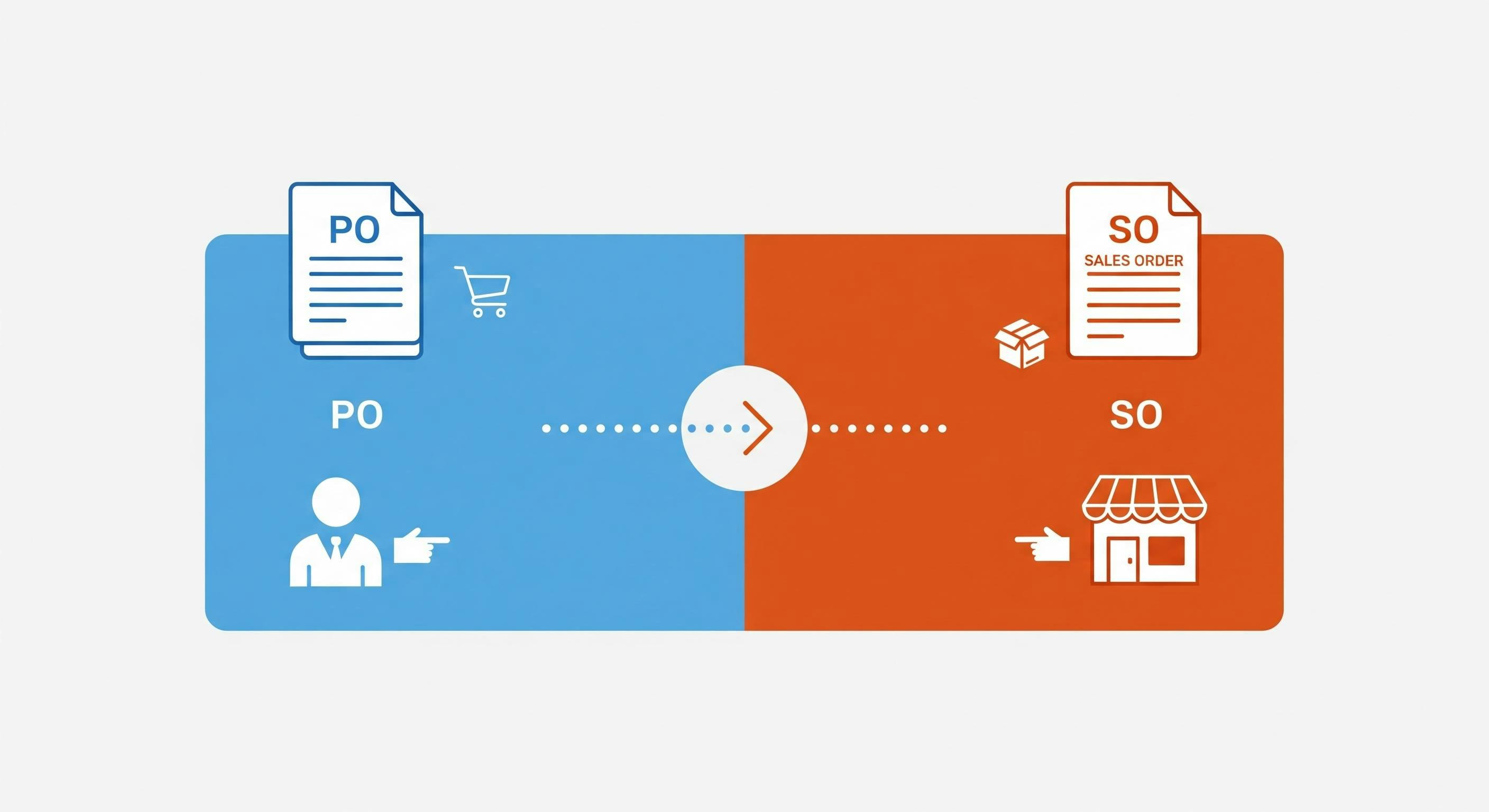Work Order vs Sales Order vs Job Card


Ever wondered how a customer's simple request for a product transforms into a concrete task on the factory floor? 🤔 In the world of manufacturing, it's all about a clear, logical flow of information. Without a structured process, turning customer orders into finished goods would be chaotic.
Think of it like a chain of command in a well-organized project. Each document has a specific purpose and triggers the next step in the process. This ensures that what the customer wants is exactly what gets produced, efficiently and trackably.
Here is a visual representation of this workflow:
Sales Order ➝ Production Plan ➝ Work Order ➝ Job CardSales Order: This is the customer's request. It says, "We need 100 shirts." Work Order: This is the internal production plan. It translates the customer's request into a manufacturing task, saying, "We will produce 100 shirts for this specific Sales Order." Job Card: This is the actual task on the factory floor. It says, "This workstation is now making 25 of the 100 shirts planned in that Work Order." The Work Order acts as the crucial bridge.
The Job Card is linked to the Work Order, and the Work Order is linked to the Sales Order.
Without the Work Order, there is no direct, standard connection between a Job Card and a Sales Order.
Let's look at each component in detail.
A Sales Order is the starting point of the entire manufacturing journey. It's the official document confirming a sale with a customer.
This document contains all the crucial details from the customer's perspective: what they want, how many they want, what price they agreed to, and when they need it.
A Work Order is the internal production plan. It acts as the master instruction sheet, translating the customer-facing Sales Order into a language the production team can understand and execute.
Sales Order SO-12345." The Work Order authorizes the consumption of raw materials, allocates resources, and schedules the production run.
It's the central hub that connects the sales department's promise to the factory's actions.
A Job Card (sometimes called a job ticket or work ticket) is the most granular instruction. It's a specific task assigned to a particular workstation or employee, derived from the broader Work Order. A single Work Order can be broken down into multiple Job Cards.
Work Order #WO-67890" The Job Card provides detailed, actionable steps for the operator, including materials to use, machine settings, and quality checks required for that specific part of the process.
As you can see, the Work Order is the crucial bridge in this system.
Job Card is linked to the Work Order. Work Order is linked to the Sales Order. Without the Work Order, there's no standard, direct connection between a Job Card and a Sales Order. This middle layer is essential for organization, tracking, and resource management in any modern Manufacturing Execution System (MES) or ERP software.
Understanding this hierarchy is the first step toward streamlining your production and ensuring that every task on the floor is perfectly aligned with customer demand. ✨

Unsure about POs and SOs? This simple guide breaks down the key differences between a Purchase Order and a Sales Order to help you understand business transactions.